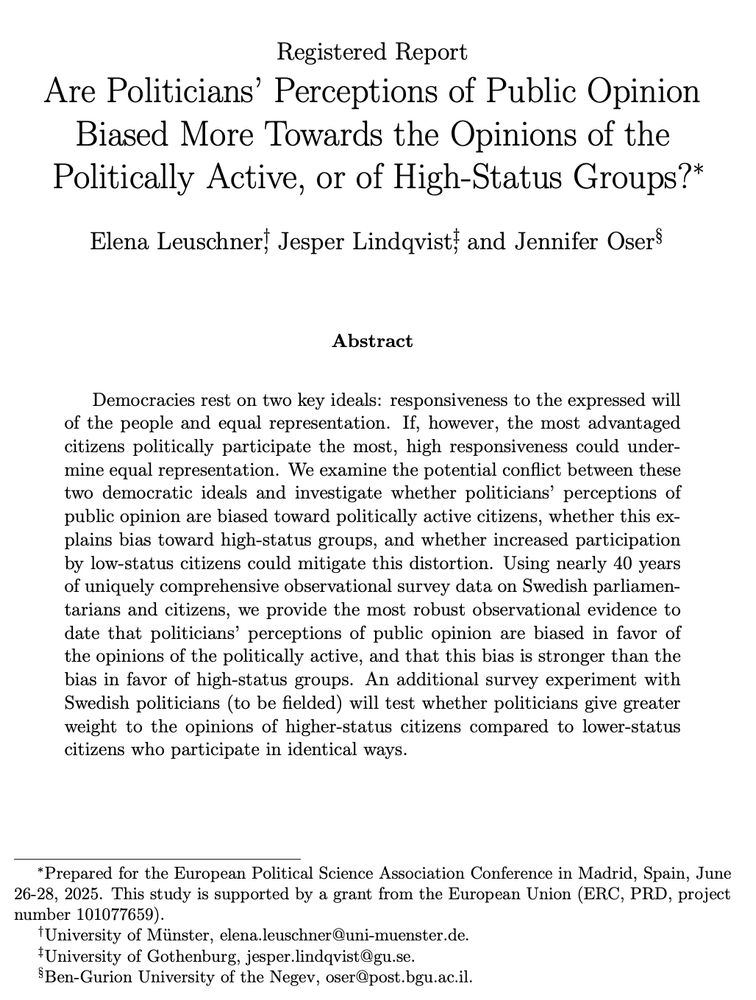Jesper Lindqvist
@jesperlindqvist.bsky.social
1.2K followers
310 following
42 posts
Post-doctoral researcher, Lund University. Researching representation, participation, cleavage and left-right politics. Currently working on the project "Political Party Competition and the Transnational Cleavage in Europe" together with Jonathan Polk.
Posts
Media
Videos
Starter Packs
Reposted by Jesper Lindqvist
Reposted by Jesper Lindqvist
EPSS
@epssnet.bsky.social
· Aug 7
Reposted by Jesper Lindqvist







